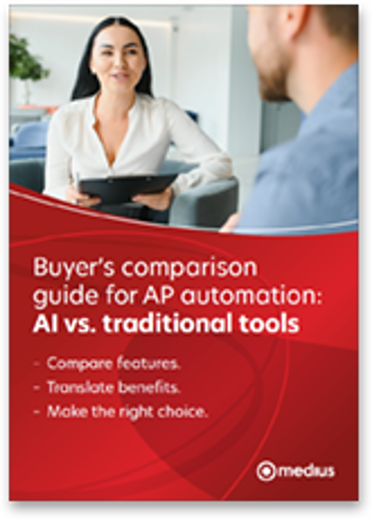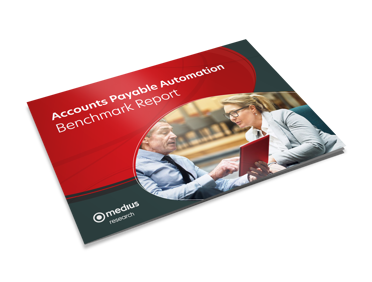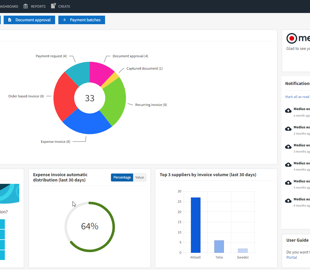What is a business case
for AP automation?
A business case for accounts payable (AP) automation is an internal proposal that explains the benefits and costs of automating your AP process. It highlights how automation can save time, reduce errors, improve visibility, and strengthen vendor relationships, making a clear case for the investment.



 See buyer’s guide for tips >
See buyer’s guide for tips >



